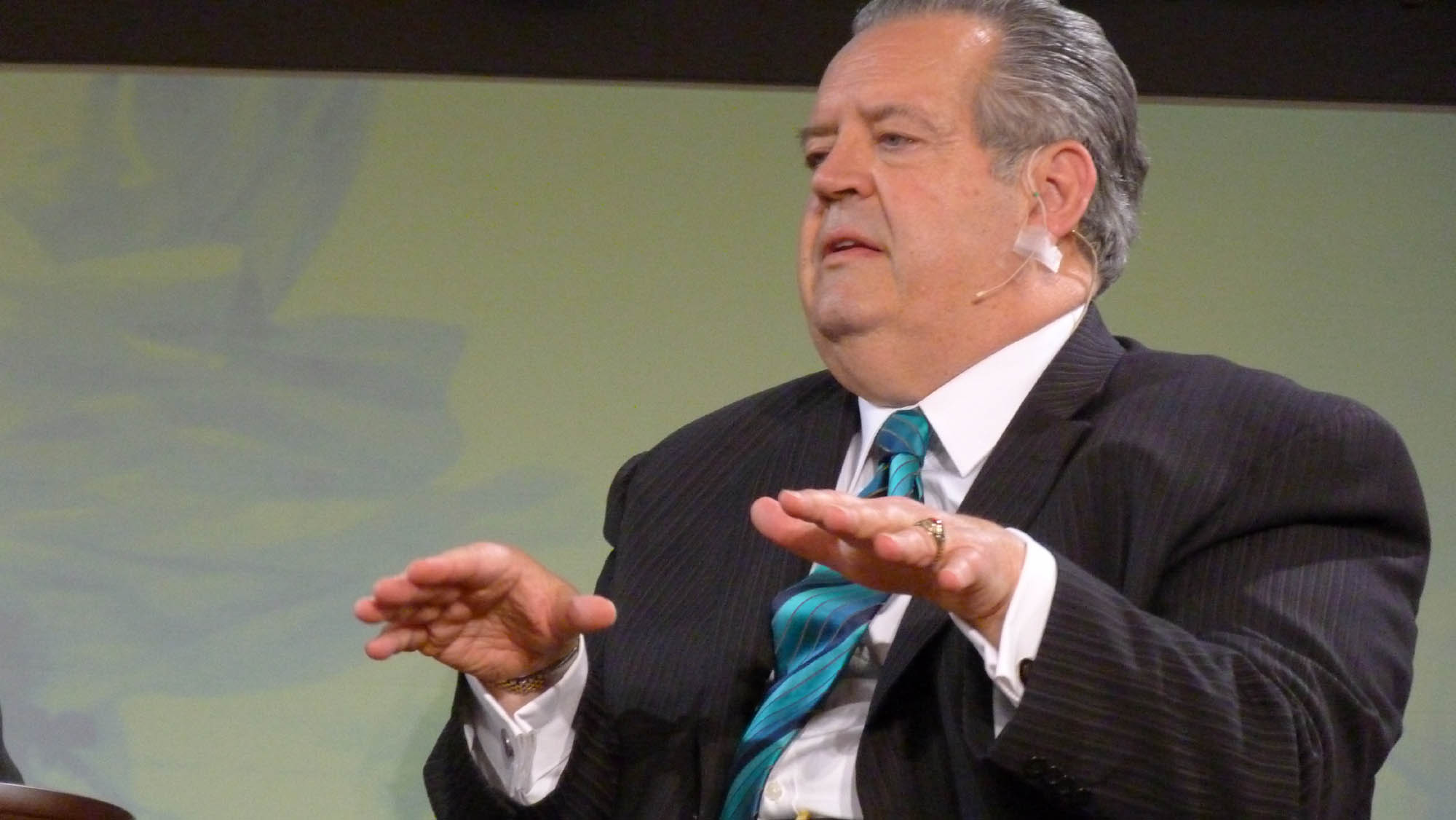
WASHINGTON (BP) — Richard Land and Jim Wallis don’t see eye to eye on a variety of issues, but they do agree on the potential nature of this year’s election campaign:
It could get really ugly.
 Land said he is “very fearful that this election will go down as the ugliest and most vicious election since 1800, which is normally considered the worst we’ve ever had” — a reference to Thomas Jefferson’s victory over John Adams in the early years of the United States.
Land said he is “very fearful that this election will go down as the ugliest and most vicious election since 1800, which is normally considered the worst we’ve ever had” — a reference to Thomas Jefferson’s victory over John Adams in the early years of the United States.
Wallis said he is “more depressed by our political discourse in this country right now than I have ever been — on both sides.”
“I’m afraid I agree that the election could be the ugliest in years,” he said.
Land and Wallis expressed their concerns during an April 10 discussion at Q 2012, an annual conference that brings together Christians to focus on cultural renewal and was held this year in Washington.
Land, president of the Southern Baptist Convention’s Ethics & Religious Liberty Commission, is identified with conservative evangelical Christians, while Wallis, founder and chief executive officer of Sojourners, is identified with liberal evangelicals.
Christians can play an important role in changing the tenor of this year’s election campaign, Land and Wallis told Q founder Gabe Lyons, the moderator, and about 700 participants.
“[A]s Christians, whether we are conservative or liberal or moderate or whatever, we have a vested interest in trying to make the discourse civil,” Land said. “You can disagree with each other and do so civilly and do so without questioning the motives of your opponent. And if the Christians don’t do that and don’t insist that candidates do that, this election is going to get really ugly, and whoever wins, it’s going to make it much more difficult for that person to govern once they win the election.”
Wallis recommended three things Christians can do in an election year:
“We should serve the common good, seek the welfare of the city we are in,” Wallis said. “Both parties will abandon the common good to be elected, I predict.
“Second, we should seek a civil discourse, civility that won’t disappear in the election.
“Third, we should find some common ground. Even those of us who may vote differently should find common ground.”
Wallis cited five “common-ground areas” — including poverty, abortion reduction and religious liberty — he would “like to explore with those who might vote differently than I might, seeing if we can provide common good, civility and common ground across even our political differences as Christians.”
He also told the audience that Christians “should be the ultimate independents. When you vote, don’t vote for a candidate … not a candidate, not a party. Vote for the issues you care about. Vote to protect those being trafficked. Vote to bring home that young man who is in his fifth tour of duty in Afghanistan. Vote for that undocumented person who you know wants a chance to live in this country. Vote for a consistent ethic of life.”
Land interjected, “Vote for unborn citizens who can’t vote.”
Christians should beware of manipulation and exploitation by political parties, Land warned participants. Churches and their leaders should not endorse candidates, he said.
“We should be looking for candidates who endorse us and endorse our values and endorse our beliefs and endorse our understanding of what are the best policies for the nation as a whole,” Land said. “You know, if we put our trust in the Democratic Party, we’re going to be disappointed. If we put our trust in the Republican Party, we’re going to be disappointed. If we put our trust in particular candidates, we’re going to be disappointed.”
Immigration reform and deficit reduction were the only two issues Land and Wallis had time to address in questions from Lyons. They agree on the need for comprehensive immigration reform and a significant change in the level of deficit spending.
The immigration system is “broken in every way that a system can be broken,” Land said.
“I think the only way [immigration reform] can be done is a grand, bipartisan bargain that’s done all at once, because neither side trusts the other side,” he said. “The American people don’t trust either one of them.”
–30–
Tom Strode is Washington bureau chief for Baptist Press. Get Baptist Press headlines and breaking news on Twitter (@BaptistPress), Facebook (Facebook.com/BaptistPress) and in your email (baptistpress.com/SubscribeBP.asp).
















